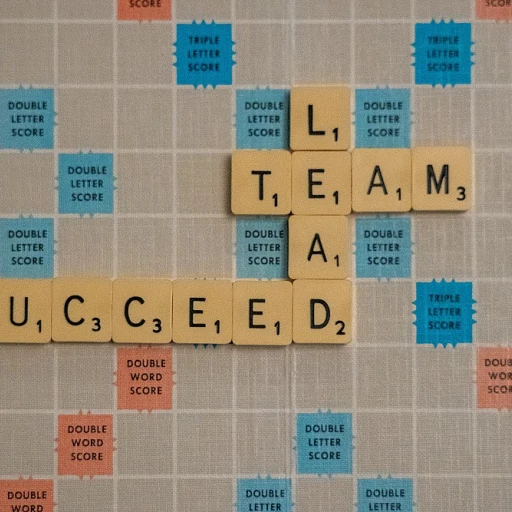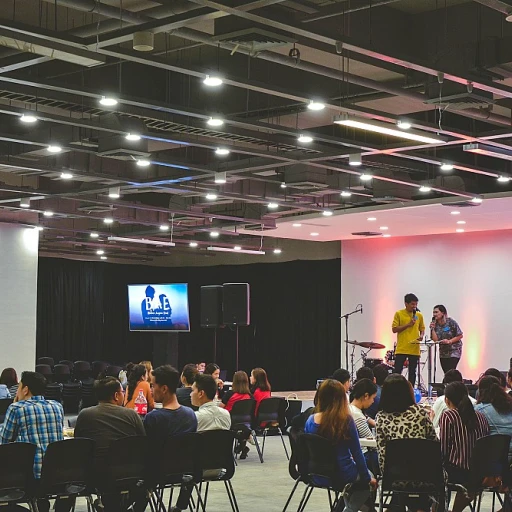-teaser.webp)
Understanding Talent Assessments
Unveiling the Role of Talent Assessments
Talent assessments have become a pivotal component for organizations aiming to unlock the potential of their workforce. These assessments are designed to provide a deeper understanding of candidates and current employees, evaluating not just their skills and abilities, but also their readiness for new roles and leadership positions. At the core, talent assessments seek to align an individual's capabilities with the needs of the organization, ensuring a harmonious fit that maximizes performance and productivity.
The process of talent assessment involves various tools and methodologies that can assess cognitive abilities, personality traits, and job-specific skills. This data-driven approach offers invaluable insights into the strengths and weaknesses of potential employees, aiding in effective talent management and development strategies. Companies can utilize these insights to make informed talent decisions, optimizing the hiring process and workforce planning for current and future needs.
By understanding how a candidate’s attributes can contribute to the organizational goals, businesses are able to foster a culture of high performance and continuous development. Comprehensive assessment framework allows for impactful succession planning, ensuring that right talent is ready to step up when needed. Moreover, the integration of these tools spans beyond recruitment, playing a critical role in leadership development and enhancing organizational performance.
For a deeper dive into how employee assessment can enhance workforce efficiency, check out this detailed guide on enhancing workforce efficiency through employee assessment.
Types of Talent Assessments
Exploring the Range of Assessment Tools
Talent assessments play a crucial role in identifying and unlocking the potential of candidates. The diverse range of tools available can provide comprehensive insights into the skills, personality, and performance traits of individuals, which are pivotal for effective talent management. One popular category of these tools is ability tests. These assessments measure cognitive abilities such as problem-solving, analytical thinking, and intelligence. They can support an organization's hiring process by pinpointing high potential candidates who are likely to excel in specific roles. By leveraging data-driven insights, businesses can make talent decisions that align with their strategic objectives. Another widely used assessment type is personality assessments. These tests evaluate behavioral traits, helping companies understand candidates' strengths and weaknesses. Such information is valuable for succession planning and leadership development, as it assists in crafting teams that can work harmoniously while driving performance. Moreover, job simulations provide a realistic glimpse into a candidate's job-specific abilities. By simulating real-life scenarios, organizations can better gauge a candidate's capability to handle day-to-day responsibilities. This approach not only saves time but also ensures the right person is placed in the right job. Learn more about crafting effective goals for these assessments, which can further enhance your organization's development efforts, particularly in refining leadership frameworks. In sum, understanding the different types of talent assessments equips organizations with the tools needed to make informed hiring decisions and efficiently develop their workforce's potential.Benefits of Implementing Talent Assessments
Enhancing Workforce Capabilities Through Talent Assessments
Implementing talent assessments offers a multitude of benefits for organizations aiming to stay competitive and agile in today's business landscape. These assessments provide valuable insights into the skills, abilities, and potential of candidates and existing employees, shaping critical decisions in various HR and talent management processes. Let's explore some key benefits of integrating talent assessments.- Data-Driven Hiring Process: Through a range of assessment tools such as cognitive ability tests, personality assessments, and job simulations, businesses can make more informed hiring decisions. This data-driven approach helps in identifying high potential candidates by evaluating specific skills and job-specific attributes required for the role.
- Enhanced Talent Management: By leveraging talent assessments, organizations can identify the strengths and weaknesses of their workforce. This understanding aids in creating tailored leadership development programs and enhances succession planning efforts, ensuring that the right individuals are prepared for future leadership roles.
- Focused Employee Development: Talent assessments support the development and growth of employees by identifying areas that need improvement. Organizations can use these insights to offer targeted training programs that boost employee performance and align with business goals.
- Improved Performance Insights: Regular assessments provide ongoing insights into employee performance and potential. This helps in tracking development over time and allows organizations to adopt proactive talent strategies to nurture and retain top talent.
- Streamlined Workforce Planning: Integrating assessments into workforce planning allows for strategic alignment between employee capabilities and organizational needs. With a clearer understanding of available skills, resources can be allocated effectively, supporting both short-term projects and long-term strategic objectives.
Challenges in Talent Assessments
Addressing Hiccups in Talent Assessments
While talent assessments offer profound insights into a candidate's potential, organizations often encounter various challenges when integrating these tools into their hiring process. Understanding these hurdles can help businesses better navigate and optimize their assessment frameworks.
Firstly, assessment tools require specificity to be genuinely effective. Generic tests may fail to evaluate job-specific skills, leading to inaccurate assessments of potential employees. Instead, organizations need to focus on developing tailored tests that reflect specific responsibilities within their roles.
Data collection and interpretation pose significant challenges as well. While data-driven talent decisions are ideal, ensuring the accuracy and relevance of the data collected is crucial. Misleading data can skew results, impacting the overall decision-making process. This calls for an adept interpretation of data, which utilizes both technology and human insight.
Time constraints also present a considerable challenge. Implementing comprehensive evaluations within a limited timeframe can be daunting, often resulting in rushed assessments that don't fully capture a candidate’s capabilities. Balancing thoroughness with efficiency is key.
Furthermore, organizations might struggle with resistance to change. Transitioning to a system heavily reliant on assessments requires a culture shift. It involves training leadership and staff to understand the value and integration of these tools into their day-to-day operations.
Lastly, maintaining fairness and objectivity is paramount. Tests measuring personality, cognitive ability, and specific skills must be meticulously designed to avoid biases, ensuring an equitable process for all candidates.
Addressing these challenges involves a firm commitment to continuous learning and development. By remaining adaptable and informed, organizations can harness assessments effectively to drive business success and enhance workforce potential.
Integrating Talent Assessments into Workforce Planning
Strategically Aligning Talent Assessments with Workforce Needs
Incorporating talent assessments into workforce planning offers organizations a structured approach to making informed talent decisions. By leveraging data-driven insights from various assessments, companies can effectively address both current and future talent requirements, ensuring the right candidates with the right skills are in place at the right time. Here, we delve into the integration strategies that can optimize the hiring process and reinforce talent management efforts. Talent assessments provide a wealth of information about potential candidates, shedding light on their specific skills, cognitive ability, and personality traits. When integrating these assessments into workforce planning, it's crucial to establish an assessment framework that aligns with the organization's business objectives. This framework should consider the diverse range of assessments, from ability tests to job simulations, and how each type of assessment can identify high potential candidates or pinpoint areas for leadership development. Furthermore, assessments can play a pivotal role in succession planning. By evaluating the strengths and weaknesses of current employees, organizations can devise targeted development programs to prepare individuals for future leadership roles. This proactive approach not only fosters organizational growth but also ensures smooth transitions within critical positions. The adoption of sophisticated assessment tools is essential for capturing performance data and driving talent decisions. These tools provide detailed insights that can be used to refine hiring processes, tailor training programs, and foster an environment of continuous learning. Learning from these data, businesses can more effectively align their workforce strategies with organizational goals. It's important to remain aware of the challenges that may arise during the integration of talent assessments. Ensuring that the assessment methods are consistent, reliable, and unbiased is crucial to maintain trust and authority within the organization. Regular evaluation and updates to the assessment process can address these challenges and ensure that the tools remain relevant in a rapidly changing business landscape. In sum, integrating talent assessments strategically into workforce planning can transform the way organizations identify, hire, and develop talent. Through careful alignment with business objectives, these assessments can enhance both the agility and resilience of the workforce.Future Trends in Talent Assessments
Adapting to the Evolving Landscape of Talent Assessments
In the realm of workforce planning, the future of talent assessments is ever-evolving. As organizations continue to seek better ways to unlock the potential of their workforce, several key trends are shaping the direction of talent assessments.- Data-Driven Insights: The integration of sophisticated data analytics into talent assessment processes is transforming the way insights are gathered. Modern tools allow organizations to analyze vast amounts of data on candidate performance, providing deeper insights into strengths, weaknesses, and specific skills. This data-driven approach enables more informed decision-making and enhances the effectiveness of hiring and talent management strategies.
- AI and Machine Learning: Artificial intelligence and machine learning are playing a pivotal role in refining talent assessment procedures. These technologies help in creating dynamic assessment frameworks that can be tailored to specific job roles or organizational needs. Through AI, candidate assessments are becoming more nuanced, examining not only cognitive abilities but also personality traits and potential for leadership development.
- Personalized Assessment Experiences: Companies are increasingly recognizing the importance of providing a personalized assessment experience for candidates. This involves crafting assessments that consider the unique job-specific requirements and cultural values of the organization. Personalized candidate experiences can improve engagement levels and lead to better talent decisions.
- Integrative Approaches to Workforce Planning: Rather than viewing assessments as standalone procedures, organizations are incorporating them throughout the entire hiring process and beyond. With a more holistic view, businesses are using talent assessments as part of wider talent management systems, enriching succession planning and leadership development pathways.
- Focus on Continuous Development: The shift towards a learning-centric approach in workforce planning emphasizes continuous development. Future talent assessments will likely focus more on identifying not just current capabilities but also the potential for growth and development within a job. By focusing on long-term development opportunities, organizations can cultivate high-potential employees and prepare them for future leadership roles.














